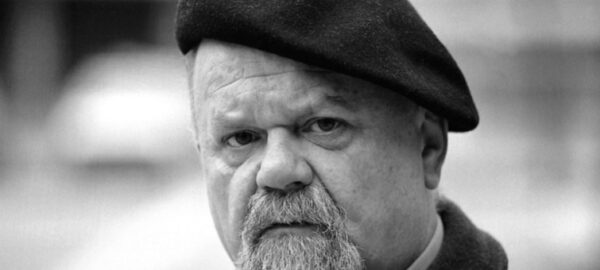 The academician Abdulah Sidran has died., but the hypocrisy and rude appropriation of the Islamic Community for the living and the dead did not die: during his lifetime, they rejected him, after his death, they will bury him in the mosque’s harem, even though burial is forbidden there.
The academician Abdulah Sidran has died., but the hypocrisy and rude appropriation of the Islamic Community for the living and the dead did not die: during his lifetime, they rejected him, after his death, they will bury him in the mosque’s harem, even though burial is forbidden there.
– Renowned Bosnian poet, screenwriter, and academician Abdulah Sidran died on March 23 at the age of 80; the funeral is scheduled for March 27 this year. Although he avoided talking about death and burial during his lifetime, considering it “a waste of time” because “it will be as others decide, your only role is to whimper,” his death and burial will still be discussed. The Islamic Community of Bosnia and Herzegovina, the ruler of the state, the living and the dead, a company that interferes in everything in its own special way, made sure of that.
– Sidran declared himself as an atheist several times during his lifetime, sometimes calling himself an agnostic, but never a believer. However, as it happens, and as he himself predicted, “he no longer asks for anything.” His burial is announced in the harem of Ferhadija Mosque, in a place where the closest to God and the “greatest Muslims and believers” go. Although burials are prohibited there according to the regulations of the Islamic Community of Bosnia and Herzegovina (IZBiH), these regulations are easily violated when the leadership of the Rijaset decides, and this has been done several times before, most recently when the writer Nedžad Ibrišimović was buried there in 2011. Sidran publicly expressed his atheism several times on TV and in interviews; the last time he confirmed this was on the portal Klix.ba in 2019.
“I was born an atheist, raised as an atheist, grew up as an atheist, and I’m still struggling because I don’t know what I am,” Sidran said at the time, admitting that he once asked a “high official” after his great friend Ibrišimović died if there was a place for him in the mosque’s harem next to his friend, to which he received the answer that “everything is taken,” that “digging has stopped.”
Sidran then concluded that it was a lie.
“The answer that there is no place for me there because everything is taken was not true. It was possible for me to receive such an answer, but it is best as it was – I neither died nor do I intend to die,” resignedly stated the academician in 2019.
– However, the appropriation of the famous and the well-known is characteristic of the Rijaset, and after the death of the academician, it is justified in this way.
“We are fulfilling the wish of our Avdo.”
Exactly. A wish that was shamefully rejected. Now that the academician is dead, and when he “no longer asks,” they turn the tables. We are sure that, given the earlier “rejection” that he could decide on this, Sidran would have rejected this hypocrisy with disgust. In this way, it will remain written that the greatest atheists belong in the mosque’s harem if the Rijaset decides. And it has decided; they will even declare him a believer or some kind of “martyr” for whom there is no place outside the harem.
– How his family accepted the burial at this place and according to Islamic customs, where burial is otherwise prohibited unless the Rijaset decides otherwise, also means that they, like the IZBiH, have violated “his personality.”
A personality he protected in this way, talking about his burial.
“I want it to be done humanely, honestly, without hurting anyone, but also not allowing myself to be judged and subjected to protocol, routine things that actually degrade personality.”
Against his will, he was inserted into the protocol for photography and highlighting. Similarly, it was done with academician Muhamed Filipović “Tunjo.” As we all know, “Tunjo” is known for his hat, which he wore all his life; however, when he died, they put a fez on his coffin and “crossed him.”
The harem is a place for the best and those closest to God, however, considering Sidran’s atheism, it is a clear rude mistake.
Just as the family of Sidran succumbed to religious Bosniakization, the family of the deceased mufti Muamer Zukorlić did the same.
Although he wanted to be buried in the village near his native Titin, and although he was buried there, his family dug him up and buried him in the mosque’s harem in Novi Pazar.
It is easier to get pictures and newspaper stories that way, rather than going to some hills in Sandžak.
The opus of works by academician Sidran is truly impressive. He was awarded for his works with the most significant awards and recognitions: the April 6th Award of the City of Sarajevo, the annual award of the Association of Writers of Bosnia and Herzegovina, the annual award of the Publishing Company “Svjetlost,” the Zmajeve Award… For the book of poetry “Sarajevo Coffin,” which he published during the war, he received the “Freedom Award” from the PEN Center of France. His poetry has been translated into German, French, and Italian.
He is one of the most significant screenwriters in the cinematography of the former Yugoslavia. He wrote screenplays for Emir Kusturica’s films “Do You Remember Dolly Bell?,” “When Father Was Away on Business,” and “Kuduz” by Ademir Kenović.
D.Alibegić